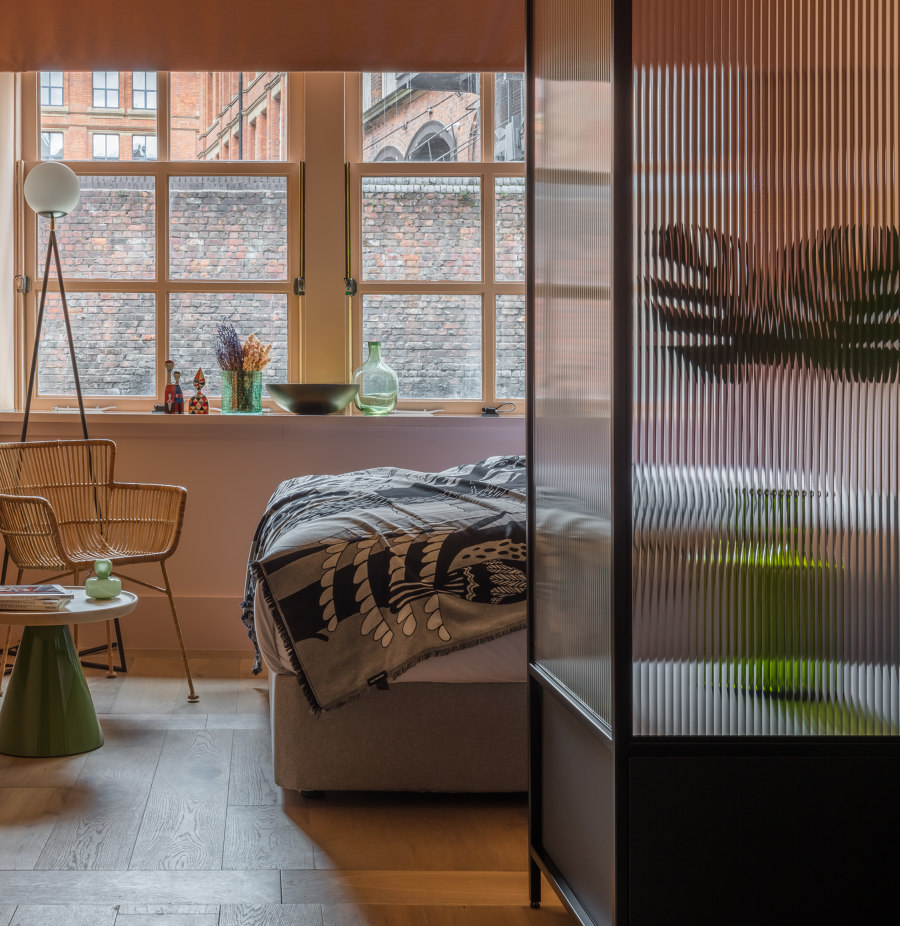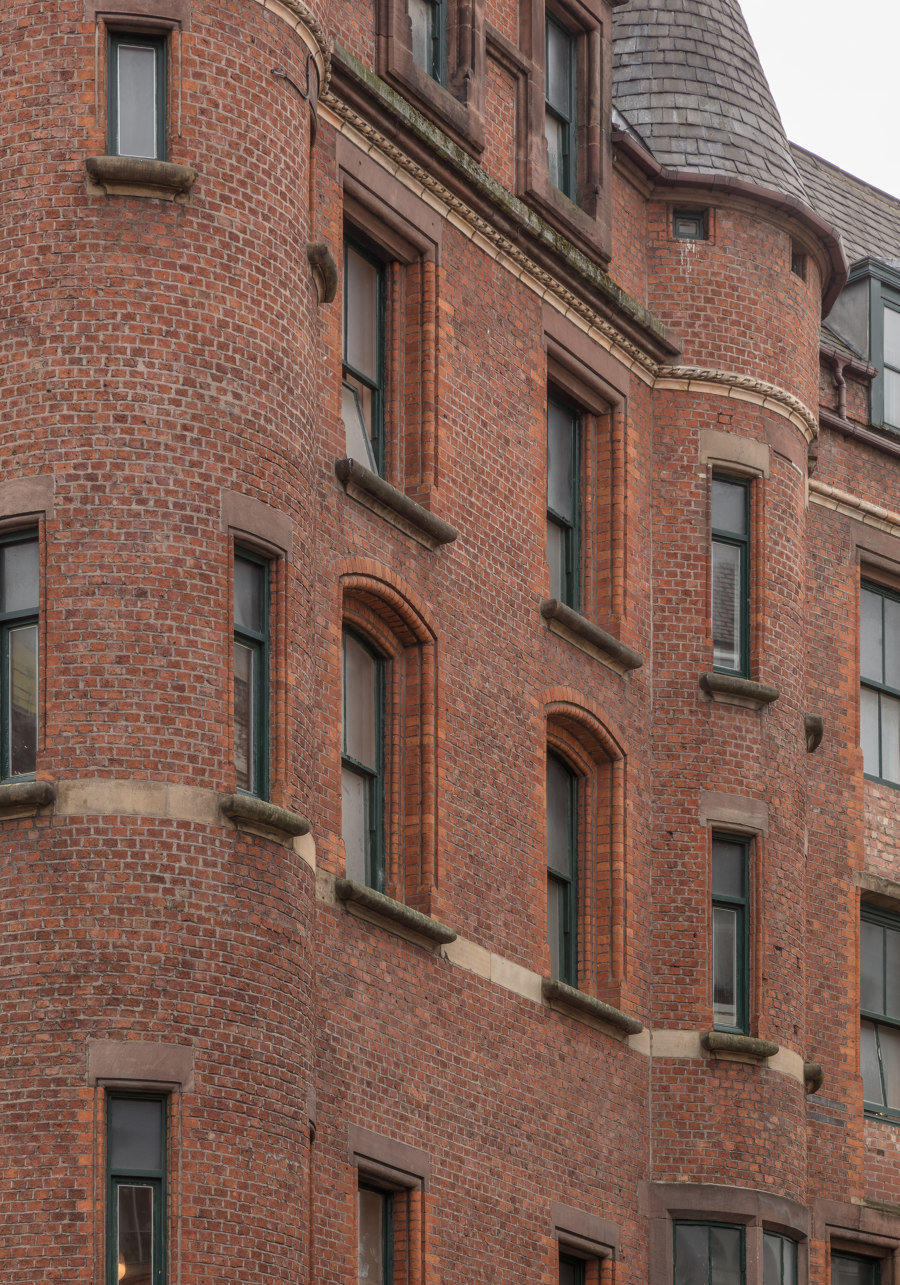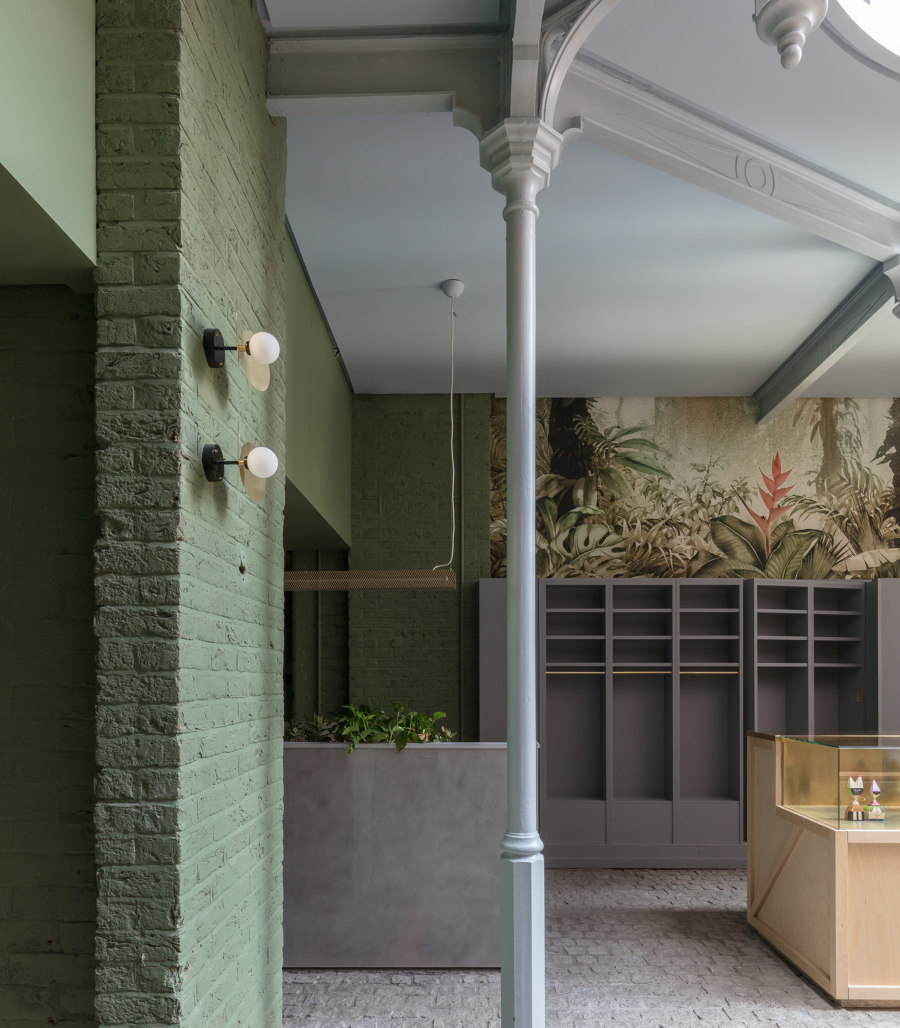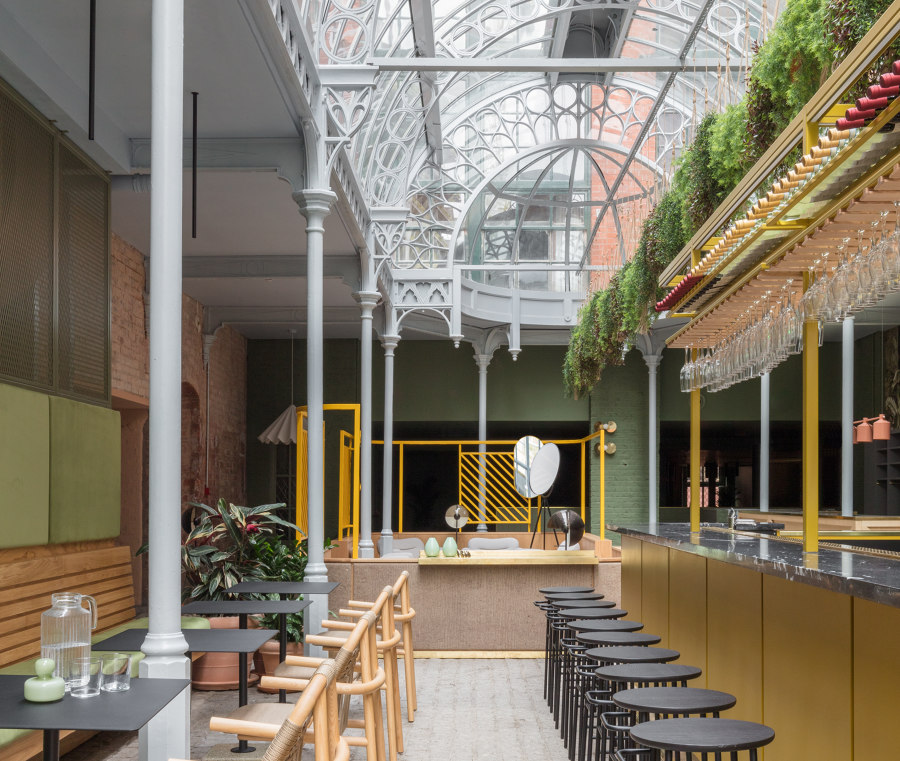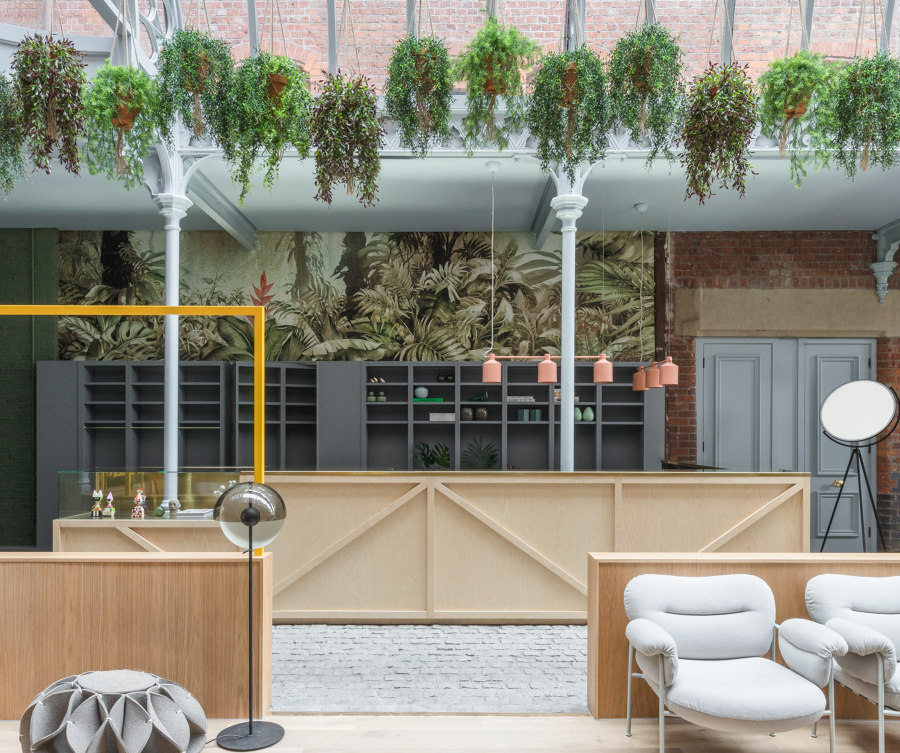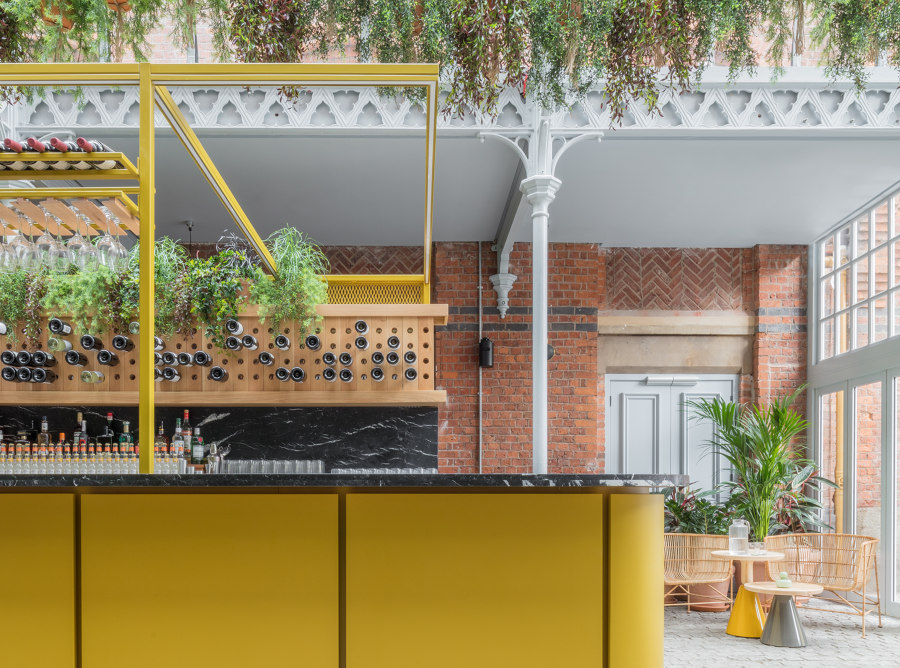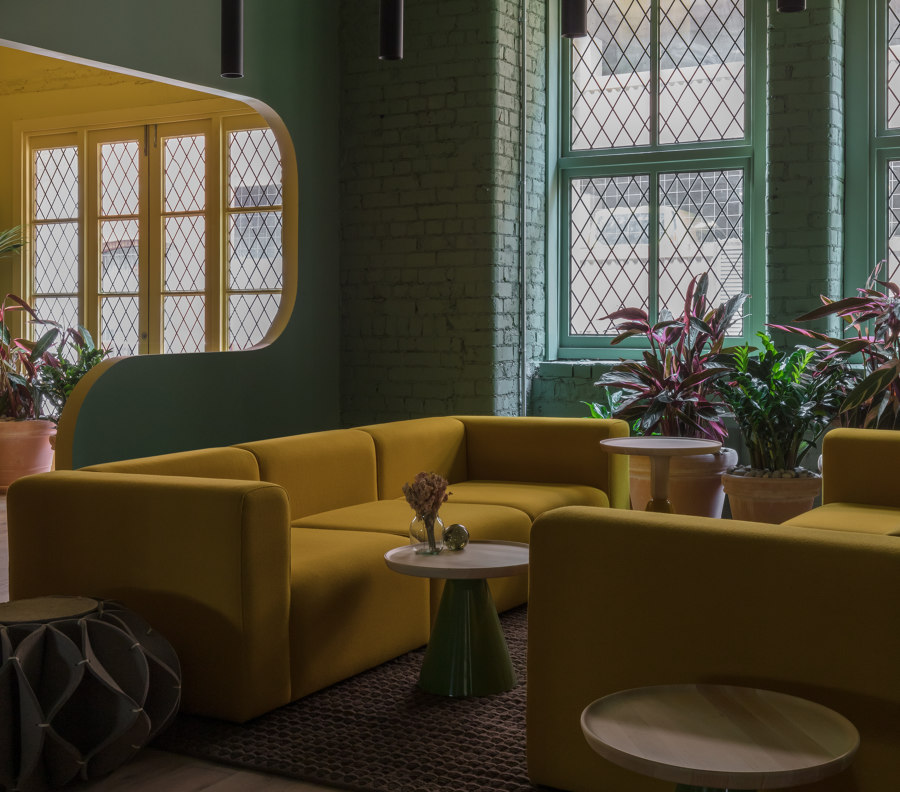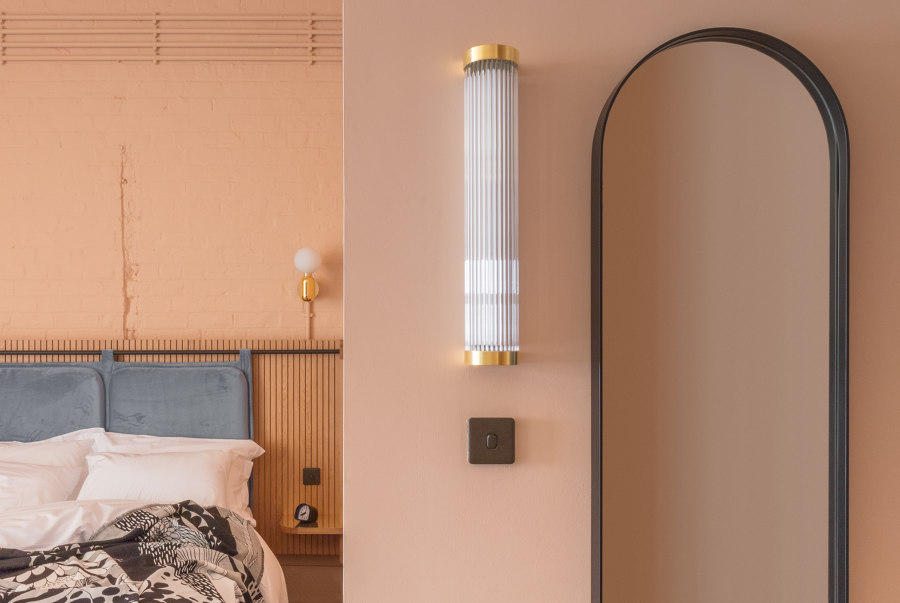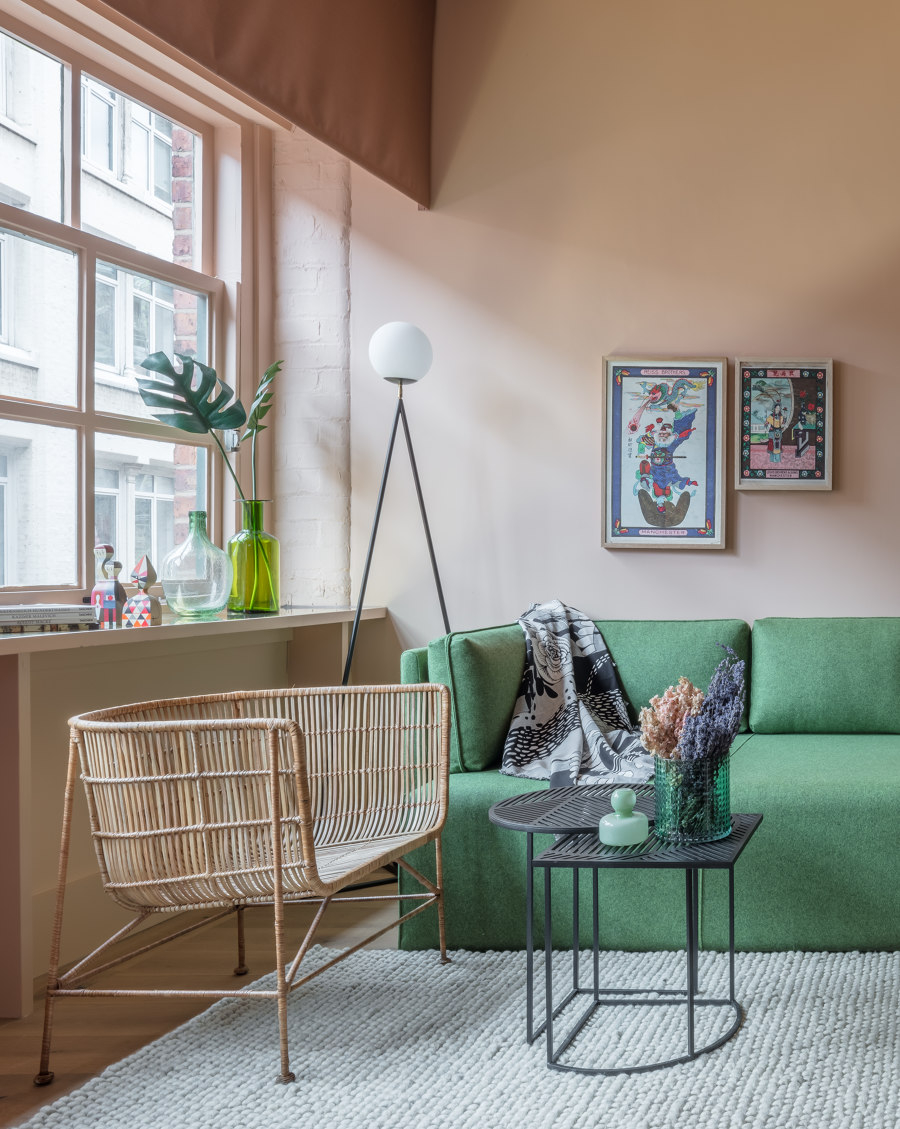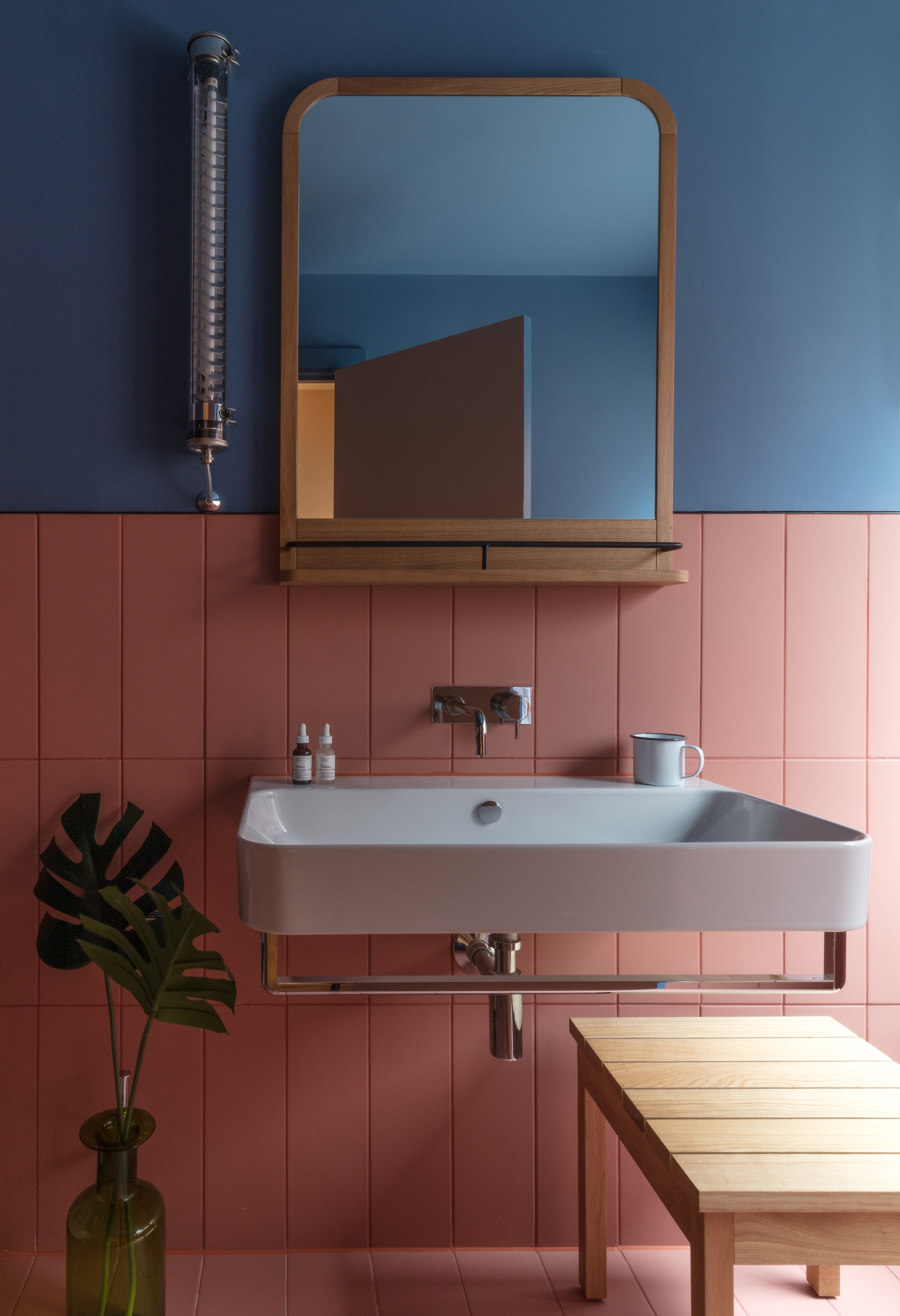Pillow talk: Grzywinski+Pons
Text by Jaime Heather Schwartz
Berlin, Germany
08.01.19
New York City-based practice Grzywinski+Pons awakens an historic, 19th-century structure in Manchester, England, with Whitworth Locke – an adaptive reuse hotel project.
The 160-room Whitworth Locke Manchester hotel came into being through Grzywinski+Pons's thoughtful transformation of a group of three interlinked buildings. The design celebrates the original structure, preserving Victorian elements, while creating a new visual language with a warmer and brighter colour palette. Also home to a bar, café, lounge and co-working space, the hotel brings together old and new, locals and visitors, in more ways than one.
Architonic had the opportunity to speak to principal Matthew Grzywinski about the project.
What was the biggest challenge you faced when adapting Whitworth Locke into a hotel?
Our gut rehabilitation was an adaptive reuse of a previous adaptive reuse and as we were working around some pretty quirky features and spaces previously suited for purpose, we had to create many different room types. In a project this size in hospitality (or residential or commercial for that matter) as architects we can often create an efficient and uniform plan. In this project of the 160 rooms, there were upwards of 75 unique room typologies so, in many ways, it was exponentially more work than a similarly scoped hotel would otherwise be.
What was the rationale for including a co-working space in the project?
As this hotel has a range of unit typologies, many of which are suitable for extended stays, we really hoped it would become a guest's “home base” – a setting from which to work, eat, drink, socialise as well as sleep. Importantly, as we wanted the property not to be an island within the vibrant city that is Manchester, we also wanted the workspace to bring in native Mancunians who might choose to work there (or just hang out) to further the intention of the hotel catalysing the integration of guests into the city and the city into the hotel experience.
In the past couple of years you have completed several hotel projects. Is there a common denominator here with regard to what they attempt to deliver?
This kind of ties in with the rationale for putting co-working into Whitworth Locke. It’s certainly an aspiration of ours to align design, art, and culture with a hotel’s overall ethos. We like to walk the line where it is still an inclusive experience for guests and ideally does something simultaneously for the neighbourhood. I think good hotels do that well – they aren’t just a tap draining the soul out of a place for people to come and consume. In a modest sense, at least they can be places for cultural exchange, a two-way street where the community can benefit from the travellers as well. Sometimes a hotel – like a cultural institution – can be a lightning rod to crystallise the creative output of a place, so that it’s available for visitors to appreciate and, in effect, that process deepens the sense of identity in a place from both perspectives.
What’s your favourite part of a hotel stay?
My favourite part of a hotel stay is to have a new launch pad into an environment that isn’t home. A place that is both exciting and comforting. An oasis that still keeps you on your toes. I must confess I also really like the opportunity to not have to pick up after myself for a short period of time.
© Architonic
Photo credits: Nicholas Worley
